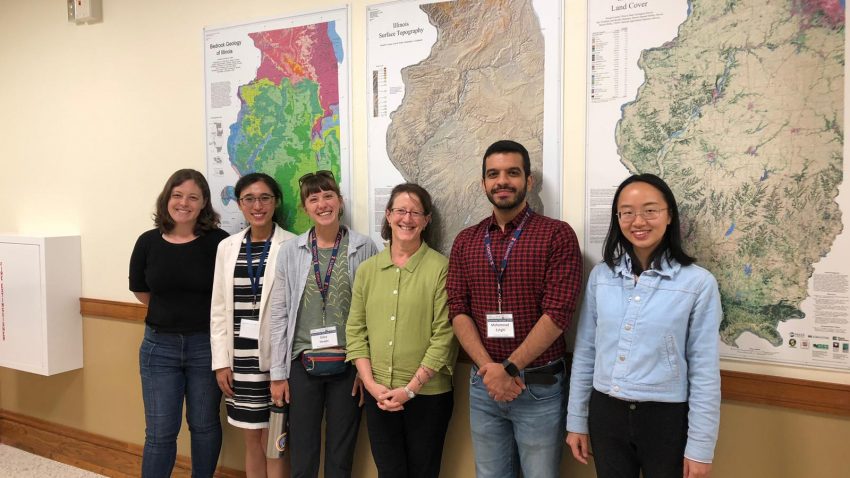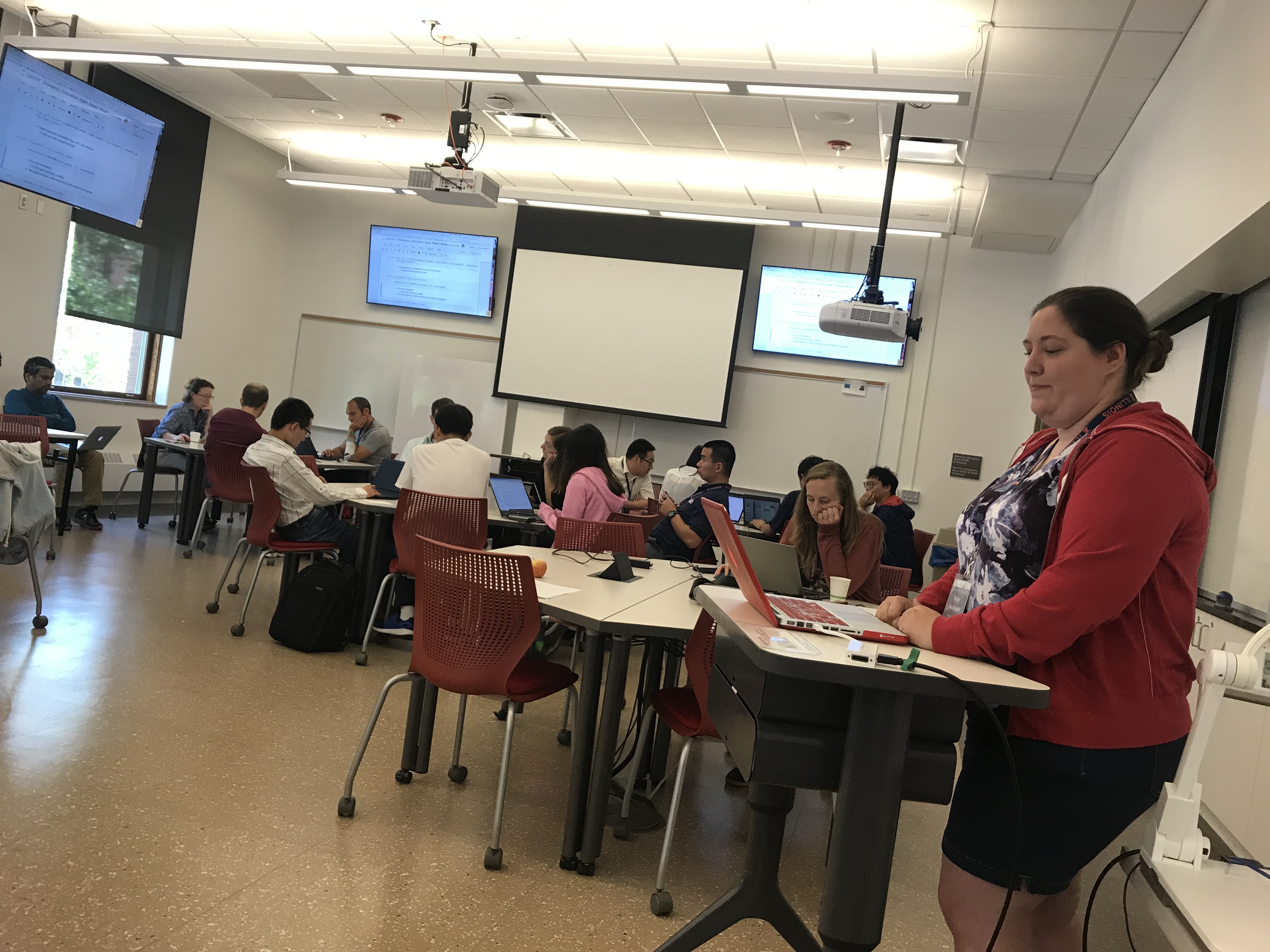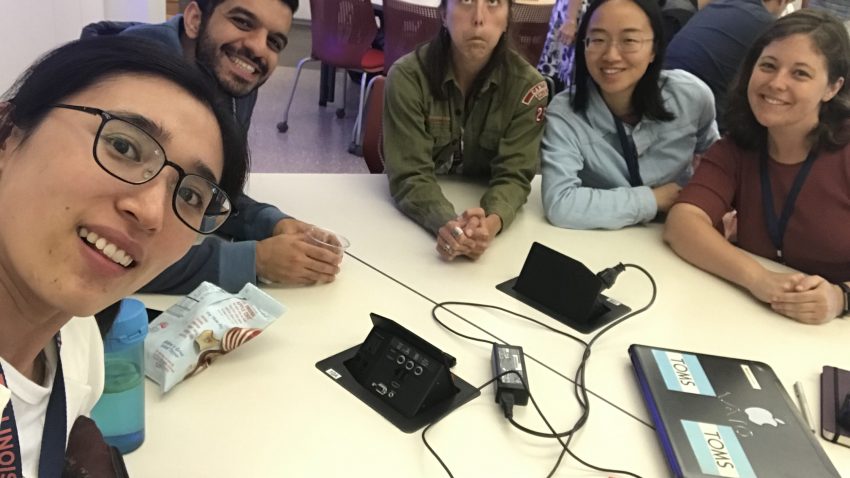Zhiyuan Yao is one of two GIS support students working in the Research & Data Service research labs at the Geology Math and Physics Library. The Data & GIS collab is open to students, staff and faculty seeking help with their geospatial data needs, and the Visualization lab is open for data visualization consultations and collaborative work. Email us at ASKData@ucmail.uc.edu for more information.
Great learning and collaboration experience in AAG-UIUC Summer School
This summer in July, I was honored to be offered the opportunity to attend AAG-UIUC 2019 Summer School, which focused on Reproducible Problem Solving with Cyber GIS and Geospatial Data Science. During the one-week summer camp, I met many scholars, got access to the supercomputer Virtual Roger through CyberGIS-Jupter, learned the cutting-edge advances regarding geospatial data science, and got a deeper understanding about reproducibility and replicability. I absolutely had a wonderful time there, and this experience provoked me to think more about how we could develop novel solutions to complex problems.

Participants in the AAG-UIUC summer school with mentor Diana Sinton (Ex Director of UCGIS in the green shirt) in the middle.
The summer school welcomed thirty students and scholars coming from twenty-five institutions and universities, including me. We were assigned into six groups aiming to solve six computational problems. Each group also had two mentors to help develop solutions for the assigned problems. I was assigned to solve a digital humanity problem. Our group members brainstormed, collaborated and finished the project successfully.
There were also hand-on workshops displaying the techniques that were useful in solving geospatial problems. Specifically, the techniques were mainly about applying Python to handling both vector and raster data, visualizing, and doing machine learning. The techniques accelerated the problem-solving process and introduced new ways to solve problems.
Beyond the amiable collaboration and practical Python knowledge, the fantastic talks by these prestigious speakers are impressive parts of this summer school. Eric Shook talked about the CyberInfrastructure. Victoria Stodden gave a wonderful talk about reproducibility in computational and data-enabled science. Charlie Catlett talked about the Array of Things, new devices and new data that helped to build up a smart city in Chicago. Tano Malik from DePaul University introduced reproducible containers as a solution to reproducible problems. These talks were inspiring as well as provoking. It made me think deeply that applying new technology to handling geospatial data is inevitable in the future and when we celebrated the advances brought by the new technology, we needed to be aware of the problems came along with it.
It is really a wonderful experience attending the summer school. I highly recommend students who are interested in geospatial science to apply for it if there is another chance in the coming year. If you have any questions regarding the summer school, please feel free to contact me through yaozu@mail.uc.edu.


